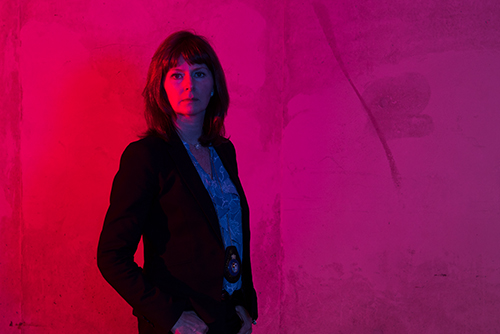Emergency? Call 9-1-1
Non-Emergency? Call 1 (866) 876-5423
- Request a Paid Duty
- Find Crime in my Area
- Find My Local Police District
- Help Solve a Murder
- Report a Crime Online
- Get a Police Record Check
- Get Crime Prevention Tips
- Learn about YRP's Units/ Sections
- Register my Bike
- Submit a Complaint Against a Member
- Submit a Compliment
- View Current Motor Vehicle Collisions
- Work for YRP
- Volunteer with YRP

Superintendent Rhonda Corsi has what it takes.
Twelve years ago, she became the first woman to join the Homicide Unit, eventually serving as one of the two detective sergeants heading up the team. Currently, she is the Inspector of #5 District, which provides police services to the 376,500 residents of Markham and Whitchurch-Stouffville.
Over her 28-year career with YRP, Superintendent Corsi has investigated triple homicides, busted cannabis grow operations, assisted the vice team in undercover operations, taken down sex offenders, dismantled international car theft rings and conducted countless interviews.
Why did you choose a career in policing?
You know the show Cagney and Lacey? Well, let's just say that I never missed an episode! Honestly, I always knew I wanted to be a police officer. I wanted a career where I could help people.
What was one of your coolest moments on the job?
Back when I was working in the #3 District Criminal Investigations Bureau, I assisted the Drugs and Vice Unit in locating and destroying outdoor cannabis grow operations. One day, I was in my full take-down gear, ripping through the fields in a Hummer, with our helicopter flying overhead--and I remember thinking to myself: this is a pretty great job.
Why did you join the homicide unit?
I have always had a keen interest in interviewing and investigating. And the Homicide Unit really is the investigative pinnacle of crimes against persons.
What are the traits of a good homicide detective?
You need to be confident in your abilities, meticulous, persistent, and resilient. You also need to be a good people person and have the power of persuasion to get the information you need, often from people who don't want to talk to police.

What is one of your most memorable investigations?
Back in 2015, I was one of three investigators from York Regional Police invited to attend an international anti-mafia and anti-terrorism meeting in Rome. As it turned out, there were links to traditional organized crime investigations in York Region, the Netherlands and Italy. The meeting gave international law enforcement teams and prosecutors the opportunity to share investigative information and evidence. This really emphasized the fact that crime doesn't stop at international borders. Criminal activities can be connected across the globe, so it's important to collaborate and build relationships with international colleagues.
How did your experience as a uniform officer prepare you to be a good investigator?
As an investigator, you must be an excellent interviewer and you must be comfortable testifying in court. These are skills that need to be practiced on a regular basis, and the best time to do this is when you're in uniform. Whether you're interviewing an accused shoplifter, a victim of domestic abuse or a murderer, you are using the same set of skills and level of professionalism. It doesn't matter who you're interviewing, do your best and always strive to improve. When I was in uniform, also I testified in many impaired driving cases. That's where I really learned the ins and outs of our court system and grew more comfortable on the witness stand.
What advice do you have for officers starting their careers with YRP?
I'd definitely tell them to take initiative. As a uniform officer, you can't just sit in your car and wait for calls to come in. You have to get out in the community, talk to people and investigate when things don't seem right.











